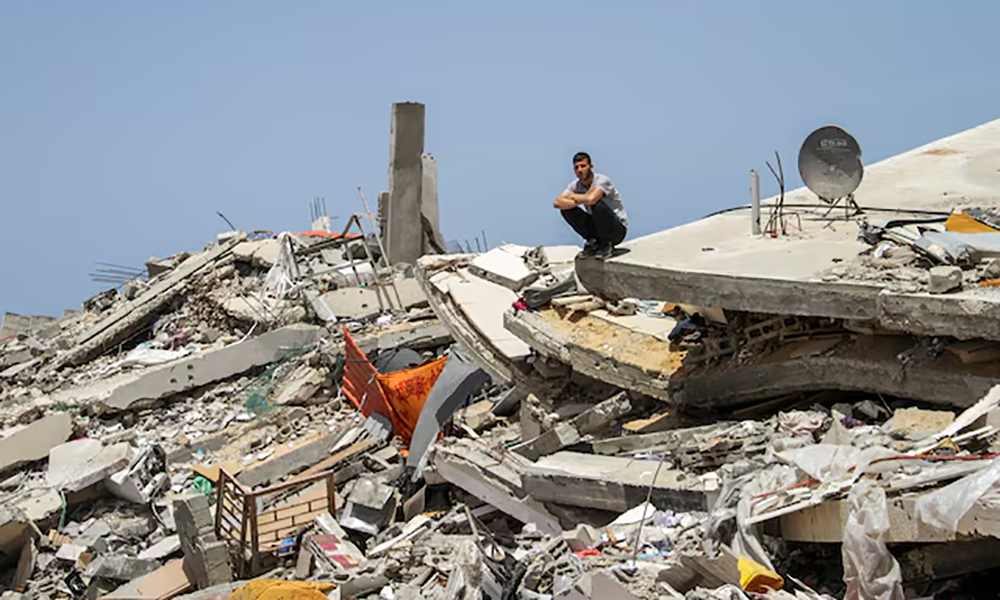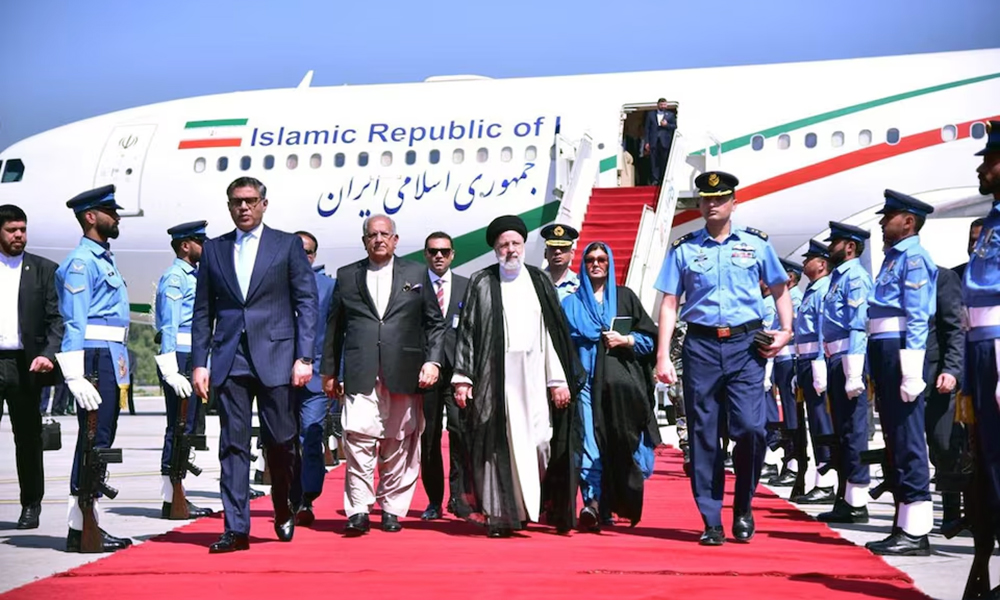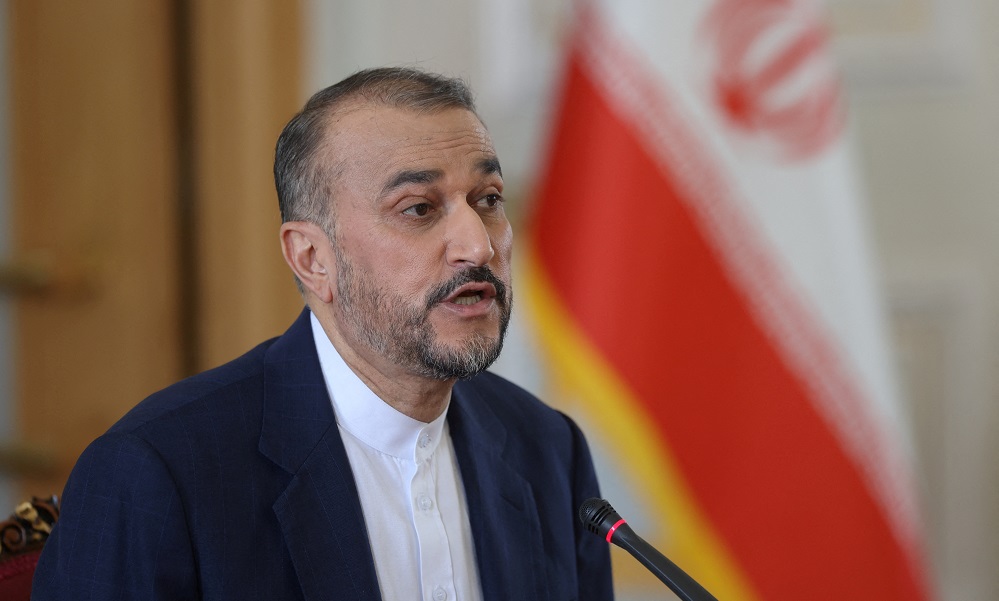Regional
Daesh leader killed in Syria by Turkish intelligence services: Erdogan

Turkish President Tayyip Erdogan said on Sunday that Turkish intelligence forces killed Daesh leader Abu Hussein al-Qurashi in Syria.
“This individual was neutralized as part of an operation by the Turkish national intelligence organization in Syria yesterday,” Erdogan said in an interview with TRT Turk broadcaster.
Erdogan said the intelligence organization had pursued Qurashi for a long time, Reuters reported.
Syrian local and security sources said the raid took place in the northern Syrian town of Jandaris, which is controlled by Turkey-backed rebel groups and was one of the worst-affected in the Feb. 6 earthquake that hit both Turkey and Syria.
The Syrian National Army, an opposition faction with a security presence in the area, did not immediately issue any comment.
One resident said clashes started on the edge of Jandaris overnight from Saturday into Sunday, lasting for about an hour before residents heard a large explosion.
The area was later encircled by security forces to prevent anyone from approaching the area.
IS selected al-Qurashi as its leader in November 2022 after the previous IS leader was killed in an operation in southern Syria.
Islamic State took over vast swathes of Iraq and Syria in 2014, and its head at the time, Abu Bakr al-Baghdadi, declared an Islamic caliphate across territory that housed millions.
But IS lost its grip on the territory after campaigns by U.S.-backed forces in Syria and Iraq, as well as Syrian forces backed by Iran, Russia and various paramilitaries.
Its remaining thousands of militants have in recent years mostly hid out in remote hinterlands of both countries, though they are still capable of carrying out major hit-and-run attacks.
The U.S.-led coalition alongside a Kurdish-led alliance known as the Syrian Democratic Forces (SDF) is still carrying out raids against IS officials in Syria.
Regional
Turkey accuses U.S. of double standards over Gaza in rights report

Turkey on Wednesday accused the United States of having a policy of double standards on human rights, saying Washington’s annual rights report failed to reflect Israel’s assaults in Gaza, Reuters reported.
Turkey’s foreign ministry said in a statement it was deeply concerned that the U.S. report did not “duly reflect the ongoing inhumane attacks in Gaza”.
The report was prepared with “political motives, far from impartiality and objectivity”, it said, calling on Washington to cease its “double-standard policy on human rights”.
It also cited U.S. ties with the Syrian Kurdish YPG militia which Ankara deems a terrorist organisation.
Israeli forces have killed more than 34,000 Palestinians in Gaza, according to health authorities there, many of them civilians and children. The enclave has been reduced to a wasteland and extreme food shortages have prompted fears of famine.
Israel launched its assault in response to an attack by the Hamas militant group on Oct. 7 in which Israel says 1,200 people were killed. It denies allegations of deliberately causing humanitarian suffering and targeting civilians.
Turkey has denounced Israel for its campaign in Gaza and called for a ceasefire. It has also criticised Western countries for what it calls their unconditional support of Israel, read the report.
In its report, the U.S. State Department said Israel’s war against Hamas had a “significant negative impact” on the human rights situation in Israel.
On Monday, U.S. Secretary of State AntZony Blinken rejected suggestions that Washington might have double standards over Israel’s record.
Regional
Iranian president lands in Pakistan for three-day visit to mend ties

Iranian President Ebrahim Raisi arrived in Islamabad on Monday on a three-day official visit, the foreign office said, amid tight security in the Pakistani capital, Reuters reported.
The visit, which Pakistan’s foreign office said would run until Wednesday, comes as the two Muslim neighbours seek to mend ties after unprecedented tit-for-tat military strikes this year.
“The Iranian president is accompanied by his spouse and a high-level delegation,” Pakistan’s foreign ministry said in a statement, adding that the group also included the foreign minister, other cabinet members and senior officials.
Raisi will meet Prime Minister Shehbaz Sharif and other officials, besides visiting the eastern city of Lahore and southern port city of Karachi, it added.
Major highways in Islamabad were blocked as part of the security measures for Raisi’s arrival, while the government declared a public holiday in Karachi, read the report.
Raisi’s visit is a key step towards normalising ties with Islamabad, but Iran’s supreme Leader Ayatollah Ali Khameni, not the president, has the last say on state matters, such as nuclear policy.
Tension is also high in the Middle East after Iran launched an unprecedented attack on Israel a week ago and central Iran in turn suffered what sources said was an Israeli attack on Friday.
Pakistan and Iran have had a history of rocky relations despite a number of commercial pacts, with Islamabad being historically closer to Saudi Arabia and the United States.
Their highest profile agreement is a stalled gas supply deal signed in 2010 to build a pipeline from Iran’s South Fars gas field to Pakistan’s southern provinces of Balochistan and Sindh, Reuters reported.
Despite Pakistan’s dire need of gas, Islamabad has yet to begin construction of its part of the pipeline, citing fears over U.S. sanctions – a concern Tehran has rejected.
Pakistan said it would seek waivers from the U.S., but Washington has said it does not support the project and warned of the risk of sanctions in doing business with Tehran.
Faced with the possibility of contract breach penalties running into the billions of dollars, Islamabad recently gave the go-ahead for construction of an 80-km (50-mile) stretch of the pipeline.
Regional
Iran’s foreign minister downplays drone attack, says Tehran investigating

Iran’s foreign minister on Friday said Tehran was investigating an overnight attack on Iran, adding that so far a link to Israel had not been proven as he downplayed the strike.
Iranian Foreign Minister Hossein Amirabdollahian told NBC News the drones took off from inside Iran and flew for a few hundred meters before being downed, Reuters reported.
“They’re … more like toys that our children play with, not drones,” Amirabdollahian said.
“It has not been proved to us that there is a connection between these and Israel,” he said, adding that Iran was investigating the matter but that media reports were not accurate, according to Tehran’s information.
Iranian media and officials described a small number of explosions, which they said resulted from air defenses hitting three drones over Isfahan in central Iran in the early hours of Friday. They referred to the incident as an attack by “infiltrators”, rather than by Israel, obviating the need for retaliation.
Amirabdollahian warned that if Israel retaliated and acted against the interests of Iran, Tehran’s next response would be immediate and at maximum level.
“But if not, then we are done. We are concluded,” he said.
The attack appeared to target an Iranian Air Force base near the city of Isfahan, deep inside the country, but without striking any strategic sites or causing major damage.
Israel has said nothing about the incident. U.S. Secretary of State Antony Blinken said the United States had not been involved in any offensive operations, while the White House said it had no comment.
-

 Latest News4 days ago
Latest News4 days agoPakistan’s frontiers minister stresses ‘dignified’ return of Afghan refugees
-

 Regional3 days ago
Regional3 days agoIranian president lands in Pakistan for three-day visit to mend ties
-

 Climate Change4 days ago
Climate Change4 days agoMassive river flooding expected in China, threatening millions
-

 Latest News4 days ago
Latest News4 days agoChinese keen to invest in Panjshir-Kabul water conduit project
-

 Latest News2 days ago
Latest News2 days agoRashid Khan named AWCC’s brand ambassador
-

 World4 days ago
World4 days agoTwo Japan navy helicopters crash, one body found, 7 missing
-

 Sport3 days ago
Sport3 days agoKolkata beat Bengaluru by one run in IPL as Kohli fumes at dismissal
-

 Sport3 days ago
Sport3 days agoACL: Aino Mina 3-0 Istiqlal Kabul; Attack Energy 3-0 Khadim
























